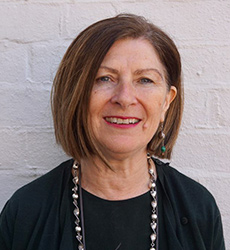Professor Berne Ferry
Which NHS and Academic Institutions do you work for?
After completing my first degree in Immunology and a PhD in Cancer Research, I worked first as a post-doctoral scientist in the transplantation department at the University of Helsinki and then had a second post-doc position and a junior research fellowship at Oxford University working in maternal-fetal immune interactions.
After 5 years as an academic lecturer at Brunel University, I moved back to Oxford to the clinical immunology laboratory where I ended up being a consultant clinical scientist and lead of the department at the Oxford University Hospitals Trust for many years.
Can you briefly describe how you became and developed as a Clinical Academic?
As you can see from above, I have always been interested in immunological research, being trained and then working as a post-doctoral scientist across three countries. Interestingly, I decided early on in my career to concentrate on human immunology and this is reflected in my post doctoral choices and my subsequent move to the NHS. In Oxford, I continued to develop research projects particularly in the field of immunodeficiency but also set up the NHS Translational Immunology Research group which continues to develop novel assays to assess functional defects in a range of chronic illnesses.
Are there examples of where your work has changed practice?
Two examples of published pieces of work completed with colleagues which lead to changes in practice are:
1) EUROclass trial: defining subgroups in common variable immunodeficiency
C Wehr, T Kivioja, C Schmitt, B Ferry, T Witte, E Eren, M Vlkova, …
Blood 111 (1), 77-85
2) Elevated serum IgG4 levels in diagnosis, treatment response, organ involvement, and relapse in a prospective IgG4-related disease UK cohort
EL Culver, R Sadler, D Simpson, T Cargill, M Makuch, AC Bateman, …
American Journal of Gastroenterology 111 (5), 733-743
Publishing is an important way for your work to gain impact and it is important for developing your academic career.
What advice would you give to an PTP/STP/HSST who is an aspiring Clinical Academic?
If you have a real interest in your science and want to help patients and develop your ideas, then believe in yourself. Find a niche area in your field and find a senior mentor who will help champion your work. There will always be people who are interested and will want to help you. But you may have to find them. Not everyone will be lucky enough to walk into a ready made research project or research environment. Find research interests that complement your clinical work as: a) you are more likely to find interested mentors and b) more likely to get your Trust interested and c) more likely to get the research funded.
